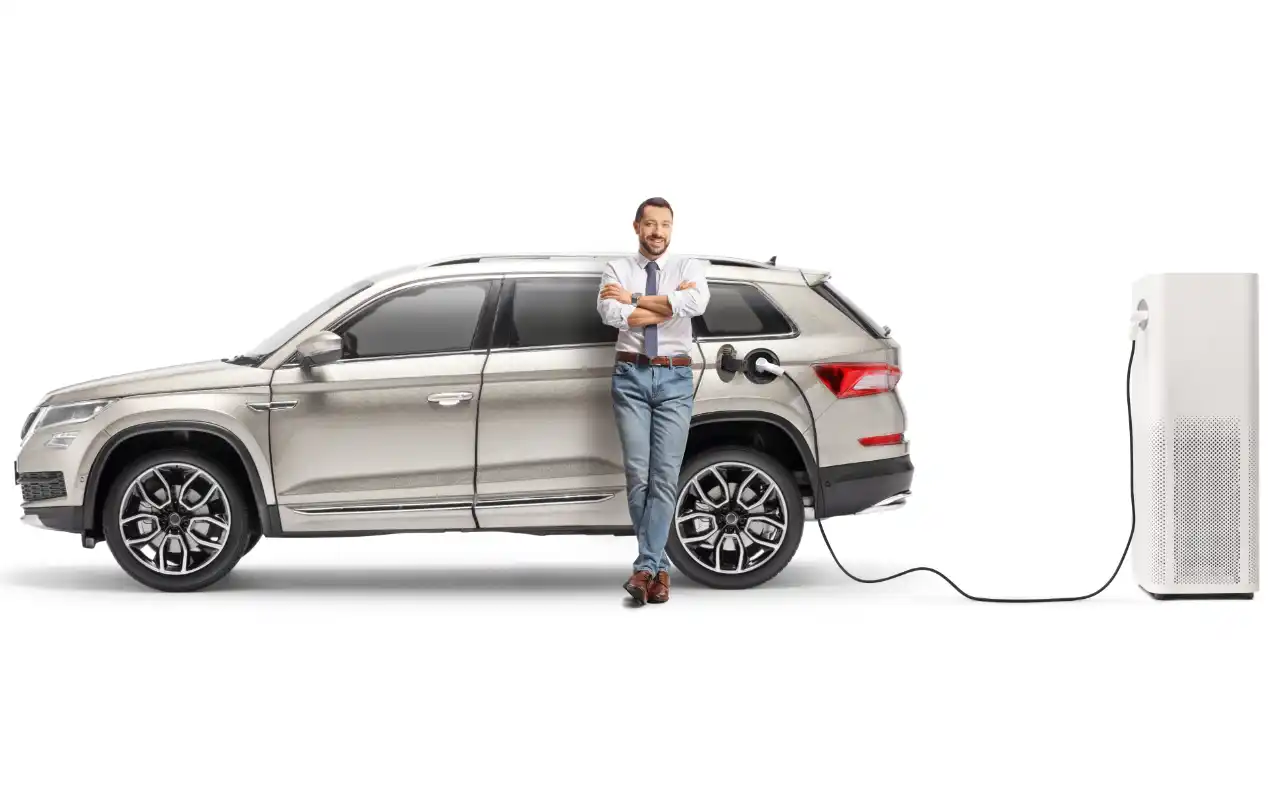
By Matthew Walters, Head of Consultancy Services and Customer Value, ALD Automotive | LeasePlan (UK)
DESPITE concerns raised by the House of Lords committee about EV misinformation and a lack of charging infrastructure, salary sacrifice schemes continue to fuel the transition to electric vehicles. According to BVRLA figures, salary sacrifice uptake surged by over two-thirds in late 2023, highlighting its popularity. However, the lack of updates on EV incentives like future Benefit-in-Kind (BiK) rates in the 2024 Spring Budget leaves the long-term trajectory of salary sacrifice programmes in question.
Salary sacrifice: setting the stage
The renewal of tax incentives four years ago spurred the growth of salary sacrifice schemes as a key driver of EV adoption in the UK. These programmes offer employees the opportunity to lease low-emission electric or plug-in hybrid vehicles through their employer, funding the car lease through pre-tax income — resulting in significant tax savings.
Salary sacrifice is undeniably the most accessible and affordable way for most drivers to get behind the wheel of a new EV. Employees enjoy both the latest tech and the opportunity to make a sustainable choice.
It’s not just about the environment; employers reap benefits too. Studies indicate employees may be more likely to remain loyal to a company offering an electric car scheme. Reports also suggest that employees are more likely to stay with the company that offers them access to the electric car scheme and data from YouGov shows that 74% of employees would like their companies to offer the scheme.
The uncertain future of salary sacrifice
Although the 2% BIK tax rate for EVs is currently in place, scheduled increases through 2028 create uncertainty. Without clarity on BIK rates beyond this window, drivers may hesitate before switching to electric vehicles.
Here’s what we believe is crucial to secure the future of salary sacrifice:
- Clarity on company car tax bands: Extending visibility beyond April 2028 is essential for businesses coping with vehicle supply chain issues. Many fleets will continue to operate vehicles ordered today even after the current tax bands expire. Sustainably low BIK rates for EVs are needed to maintain confidence in salary sacrifice schemes.
- Secondhand EV schemes: These programmes could significantly improve the accessibility of electric vehicles. Salary sacrifice schemes for nearly new, well-maintained EVs would provide the benefits of going electric at a more affordable price—essential for the mass adoption of EVs and in anticipation of the 2035 ban on new petrol and diesel cars. ALD Automotive | LeasePlan UK is already exploring this potential with our Multi Cycle Asset Management (MCAM) initiative.
- Advances in battery technology: Improvements in EV affordability will broaden the appeal of salary sacrifice. While primarily the domain of higher-income earners in the past, more budget-friendly EVs will attract more drivers to salary sacrifice – such as the new Renault 5 E-Tech.
- Charging infrastructure evolution: Reducing VAT on public charging would have been a positive step. While its absence from the Spring Budget was disappointing, infrastructure investment is paramount. More reliable and convenient public charging is particularly important for drivers without off-street parking and for fleets that rely on top-ups.
Salary sacrifice remains a popular and effective way to accelerate zero-emission transport adoption. However, with elections on the horizon, employers require reassurance and clear direction from the Government to ensure these schemes continue to thrive.

Broker News Awards 2024 – the winners
The Broker News Awards 2024 – supported by Fleet Procure – produced outstanding winners, with Synergy taking the Broker of the Year title

Broker News Newsletter 24 April 2024
Catch up on the latest leasing broker news in the 24 April 2024 Broker News newsletter

Leasing broker fleet down, but BCH is rising: analysis of BVRLA broker survey H2 2023
Analysis of the BVRLA leasing broker survey for H2 2023 shows the broker fleet is down, but BCH is on the rise

Novuna Vehicle Solutions and Select Lease by Mobilize add support to the Broker News Awards
Novuna Vehicle Solutions and Select Lease by Mobilize add support to the Broker News Awards 2024, which takes place in London on 25 April

Guest list for the Broker News Awards 2024
The guest list for the Broker News Awards 2024 contains a great list of the 85 leasing brokers, funders, suppliers and OEMs attending

Leasys UK now offers comprehensive short term rental service
Leasys UK announces a comprehensive short-term rental service. Customers can choose from a diverse range of vehicles




